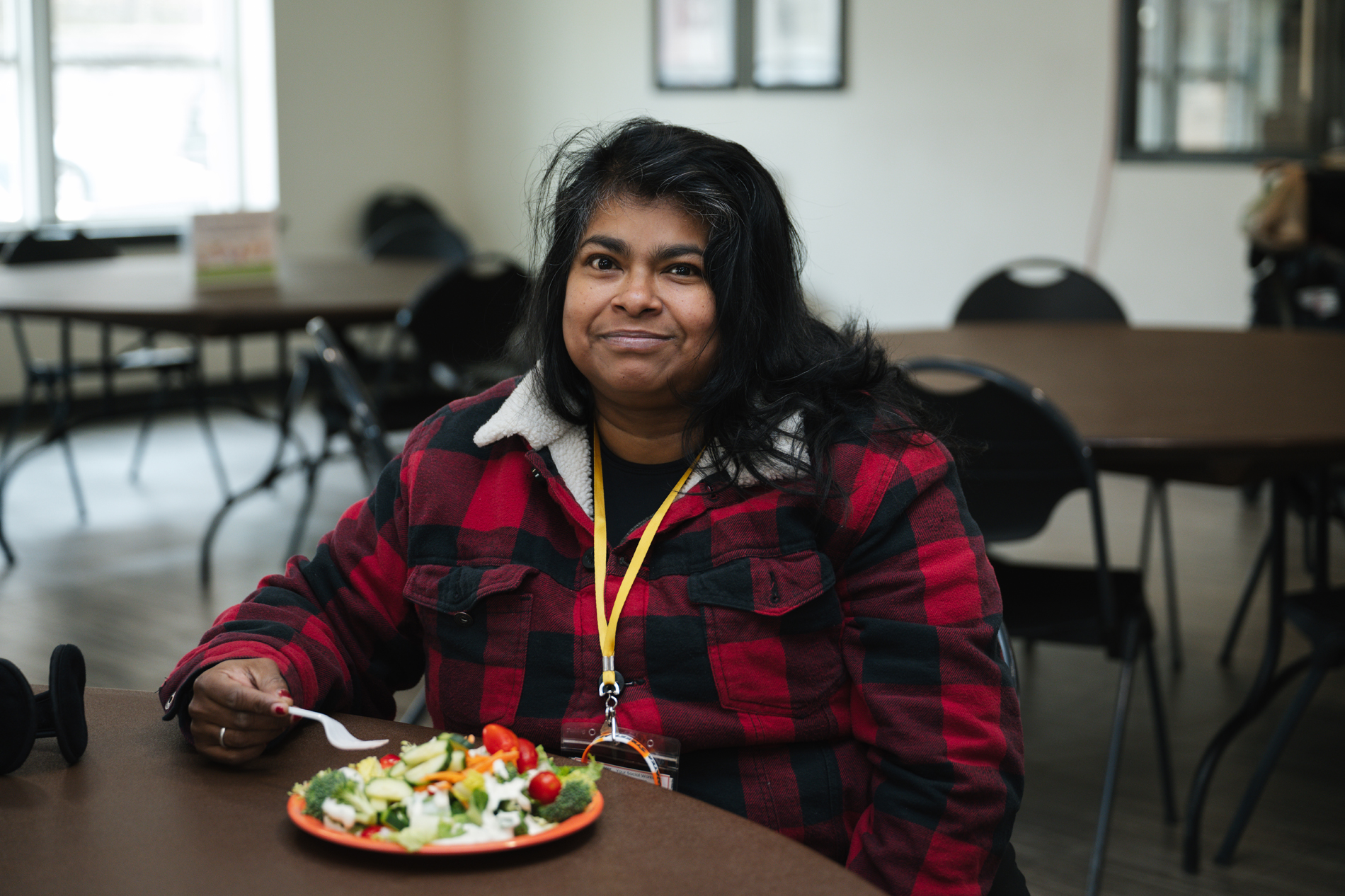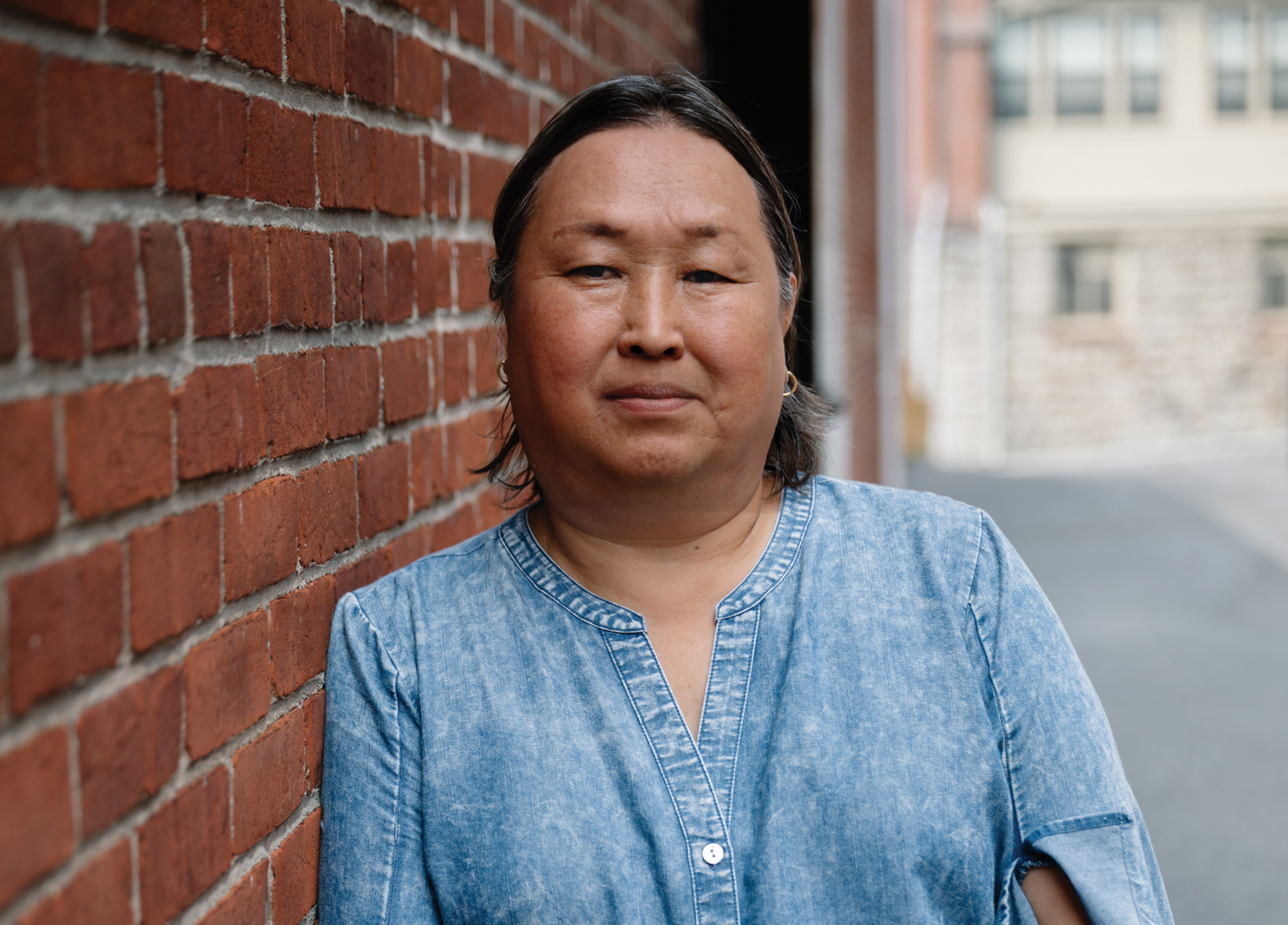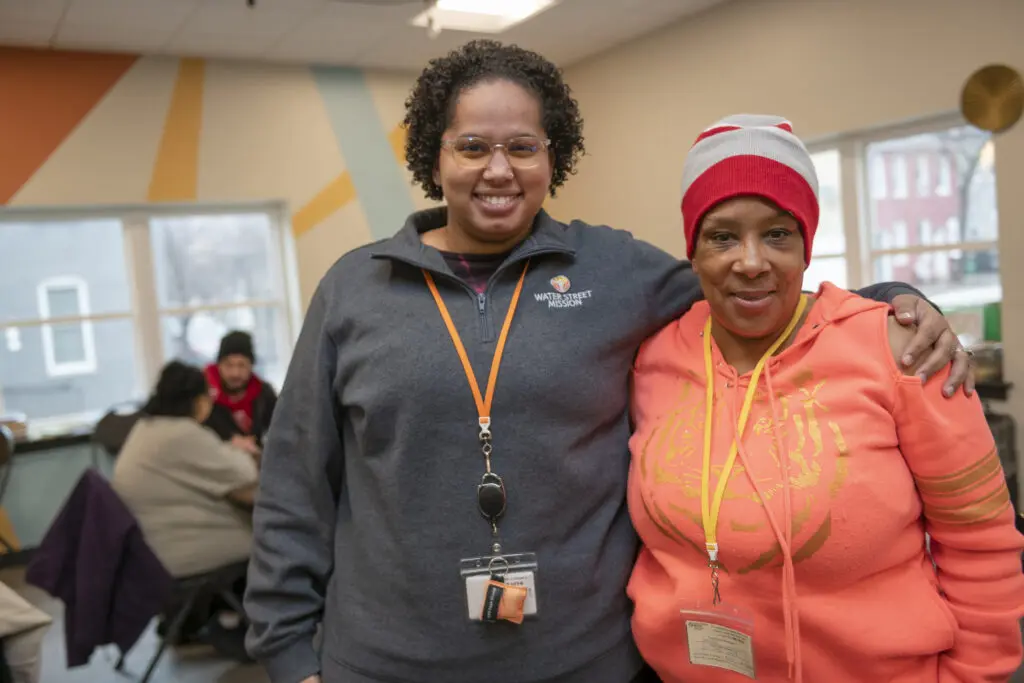
Opening Up
When young women come to us in our emergency shelter, many of them are coming out of unsafe or domestic violence situations. At 9:00 AM, Life Coach LaShanna meets with a group of these women and encourages them to fill out a prayer card with what their needs are.
Then, she encourages them to fill out a blessings card, jotting down something they’re grateful for, even while living in a shelter.
When you’ve recently escaped an abusive relationship, something like simply sharing a need and a blessing can be very challenging. Many of the women are shy at first or even scared to speak up at all.
It was a small win for LaShanna to convince one young woman to come at all, and even when she did agree to come she swore, “I’ll come to your meeting, but I’m not gonna talk.”
She might have seemed quiet at first, but then, surrounded by the other women and their vulnerability and kindness, the walls came down. She raised her hand and shared a blessing and a prayer need.
Opening up just a bit is a small step, but ultimately, it’s what leads to community.
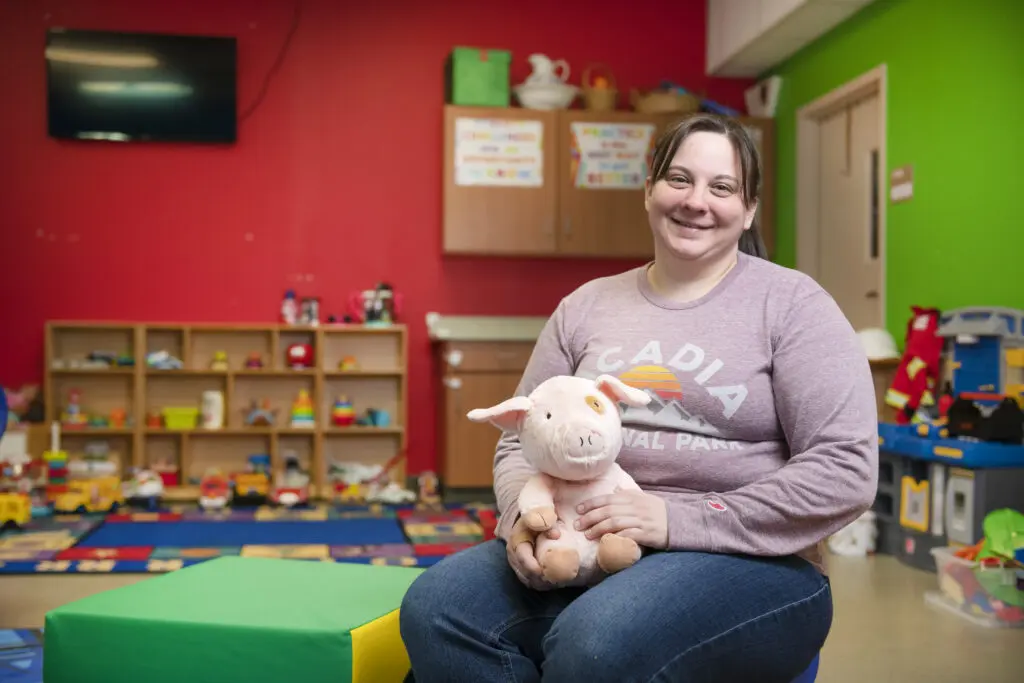
Growth in Children's Ministry
*Aiden, a little boy in our children’s ministry, would sit by himself, avoiding the other kids. Already shy, his speech impediment didn’t help the situation any.
Instead of communicating his feelings, Aiden would frequently resort to sudden outbursts or even temper tantrums. That only made it harder to connect with others.
So Heather and the children’s ministry team slowly began to work on encouraging him to communicate his feelings. It’s ok to be mad sometimes, they taught him, he just needed to learn how to express his feelings.
Then one day, he got frustrated and shouted out, “I’m angry!”
It took Heather aback, but in a good way. “Finally!” The team thought, “He’s learning to express himself!”
Another time, he asked some of the other kids to “give him some space” when he got overwhelmed, and they did.
It might seem like a small victory, but for us, it’s a meaningful change. Being able to verbally communicate his needs, even when he’s upset, is something we celebrate.
*Name changed
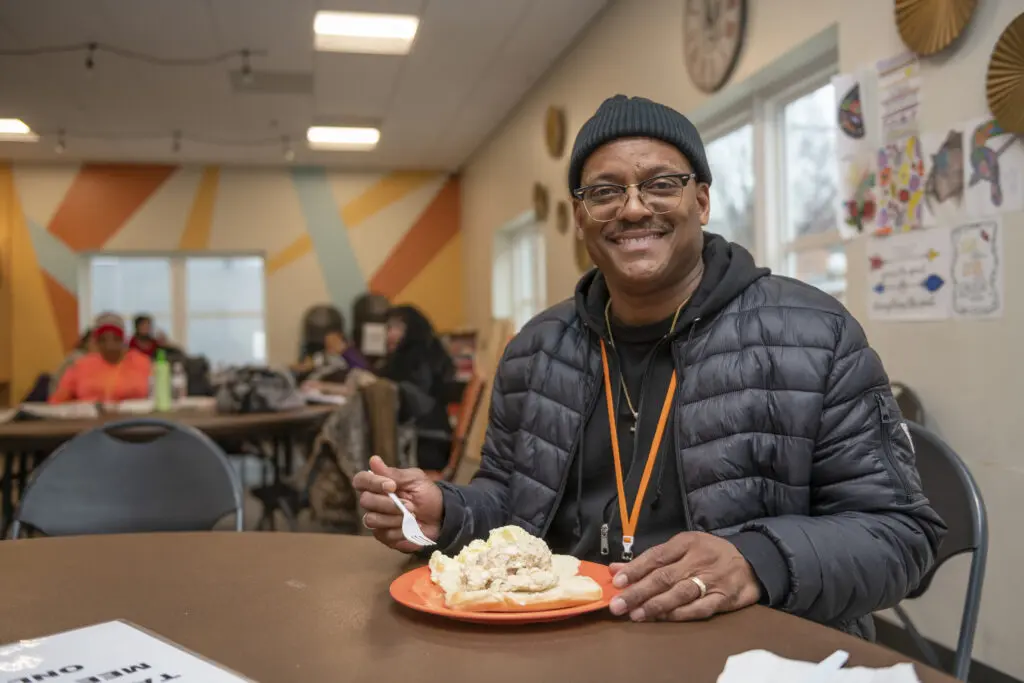
Leading by Example
Some of our guests come in dealing with pretty heavy mental health concerns. Through the veil of anxiety, depression, or other major health issues, it can be hard to reach them. So it takes time.
Our Life Coach Ron is loud and friendly. He loves joking around with guests, and he treats every person who walks through our doors the same, no matter their background or lifestyle.
Overtime one guest who was struggling to connect here finally asked Ron, “How did you get that way?”
Well, Ron used to sell drugs in Baltimore. But now he serves God at Water Street. The difference, Ron explained to him, was Jesus.
Now that guest, and a few of the other men in our residential program, go to church together. It’s a small step, but it’s certainly in the right direction.


